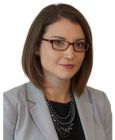Guilt
Reflecting for Truth and Reconciliation Day
Steps to start or continue your journey.
Posted September 29, 2022 Reviewed by Jessica Schrader
Key points
- In Canada, September 30 is Truth and Reconciliation Day.
- Don't ask others for their trauma stories, as this can add to their emotional labour.
- It is helpful to build allies and find ways to help within your own systems.

In Canada, September 30 marks Truth and Reconciliation Day. This is a day to understand and recognize the legacy of the Canadian residential school system/genocide of Indigenous peoples.
Over the years, I have been educating and re-educating myself on the histories, experiences, and systems still in place that hinder progress to reconciliation. For those who also want to get started or do more, here are some suggestions based on my journey so far.
Question what you know
Much of what we have learned about indigenous histories is likely created and curated by white settlers. Did "so-and-so" actually discover this? Or was this the first euro-centric contact or first written documentation? Rethinking how you learned about the past and current events and trying to find traditional knowledge or alternative viewpoints can help you gain better insights into the potential truth.
Be OK not being OK
The truth is difficult. Those of us that are privileged are lucky that we can choose whether we expose ourselves to it or not. Others have to live it. When learning about uncomfortable truths, you are likely going to experience strong emotions. These emotions may actually mimic a fight, flight, or freeze experience. That is, you may feel you want to deny, you divert, or you may feel guilt. Recognising what emotions you are feeling can help how you move forward. Denying may mean digging into the knowledge-gathering step more. Diverting may mean you want to take control back and that means you need to let other voices be heard. Guilt may mean finding ways to build relationships and empathy to aid others in their reconciliation.
Don't ask people to tell you their trauma stories
People are not defined by one part of their lives. Asking others for their trauma stories can add emotional labour as well as re-traumatize them. Instead ask people their personal stories as you share yours. Recognize if you hold more privilege that you may be used to speaking more than is needed in this situation. Allow for more space for others to speak. When in doubt, read the stories that are already written.
Don't think you have the answers to the problems
You may think you are the expert or that you understand the issue, but you are looking at the problem still through your own lens. Ask others how you can help based on the solutions they are proposing. Offering to help others is always welcomed but be wary of "white savorism."
Find ways to help within your own systems
It is more helpful to question and dismantle any systems you already have influence in. You can read through the Calls to Action to determine where you can help institutionalize them. Or you can try to make a difference at a local level. For example, if you work for a bank, examine if loans are disproportionately going to certain ethnicities, all else being equal. If you work for a grocery store, does security follow around some people more than others? If you work as an educator, examine how the curriculum describes peoples and events and what sources is it using.
Build allyship
Many individuals may not be exposed to traditional knowledge. Host book clubs or conversations to share stories you have found to help build allyship. Building awareness, bridging connections, and creating space are all helpful ways to help support. Remember to be mindful of performative allyship versus genuine allyship. That is, how are you being an ally behind closed doors is just as impactful, if not more.
I write this post from what is now known as the city of Vancouver. As I look to the Ch'ich'iyuy Elxwikn peaks, I am humbled and grateful that I am able to live, work (and because of the privilege I hold as a white settler) thrive on the shared, unceded traditional territory of the xʷməθkʷəy̓əm, Sḵwx̱wú7mesh, and Sel̓íl̓witulh Nations.
I also acknowledge that I gained my academic credentials on Miꞌkmaꞌki land and acquired skills and insights throughout my life from the Coast Salish peoples and from Cree elders on Treaty 6 territory. I particularly would like to acknowledge the wisdom of Bernadette Iahtail, Elsie Paul, and Tracy Bear for helping me along my personal path toward improving reconciliation for Indigenous peoples in Canada.


